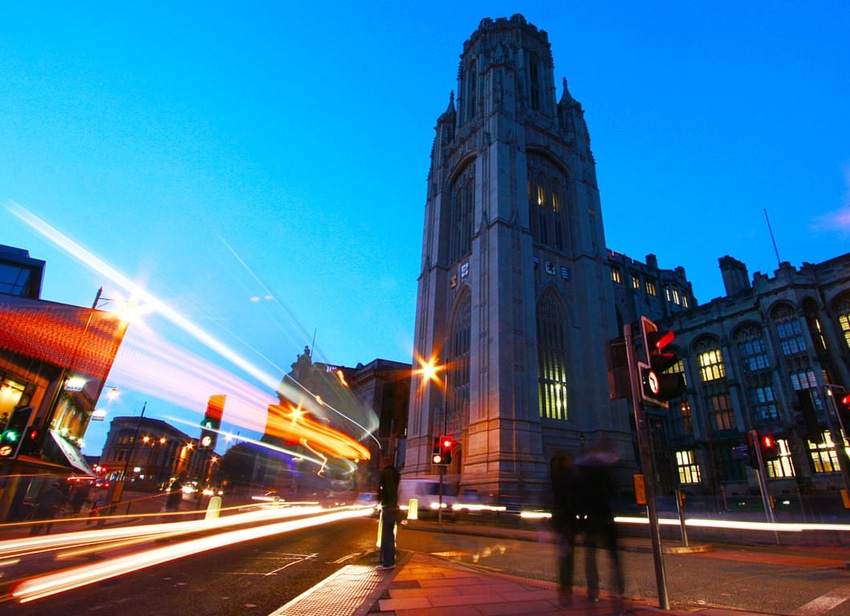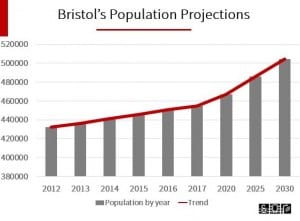Bristol puts the smart cart in front of the city horse
One of the biggest criticisms from technology commentators in recent years has been the idea of innovation for the sake of innovation, but according to Bristol is Open (BiO) that isn't necessarily a bad thing.
October 10, 2016

One of the biggest criticisms from technology commentators in recent years has been the idea of innovation for the sake of innovation, but according to Bristol is Open (BiO) that isn’t necessarily a bad thing.
Whether we’re looking at data allowances or 8K videos there can be an underlying sense the technology vendors are building the technology because they can, as opposed to answering demands within the industry. I mean, who needs 8K video on their phone!? However, Bristol is Open’s CEO Barney Smith doesn’t believe in the idea of innovation for the sake of innovation alone.
Henry Ford once commented if he had listened to his customers he would have been breeding faster horses. Smith is taking the same approach with how a city should be run. What local authorities are doing in healthcare, traffic management and generally keeping citizens happy is not working anymore. Something new needs to be done, and the smart city is a very plausible means to achieve this.
“There is an element of Ford, but the reality is there are some real problems in the cities,” said Smith. “I started studying global security back in the early nineties where we were talking about this massive population growth, but we’re not actually going to peak at the top of our population until 2050 at about 9 billion. That means the population would have doubled in size during my lifetime. A lot of that population is going into the cities.
 “Bristol city is 100 sq. /km, and this is the administrative boundary. I know we have 450,000 people living in the city and we have high congestion and differing life expectancy rates depending on where you live. Now we’ve tried all the things we normally try, but we’ve never had the problems we’re having now and we know things are going to get worse.
“Bristol city is 100 sq. /km, and this is the administrative boundary. I know we have 450,000 people living in the city and we have high congestion and differing life expectancy rates depending on where you live. Now we’ve tried all the things we normally try, but we’ve never had the problems we’re having now and we know things are going to get worse.
“We need to find new solutions for them and with less money from the public sector. We’re not going to find another massive injection of cash back into the councils. The growing problems of density, pollution, transport that we have in cities today are getting worse. To quote Einstein, we need new solutions to solve old problems.”
Bristol has been widely recognized as one of the worldwide leaders in the smart cities arena and Smith certainly gives the impression of confidence. Overall, the city is the perfect melting pot to foster and encourage the development of IoT and smart city solutions.
Unlike a lot of authorities who are crumbling under the pressure of austerity, Bristol City Council is highly proactive in supporting BiO. The city also provides a home to two universities with strong technology and engineering departments. The city has an already successful and fast growing digital business community. Much of the population is young and tech savvy, as well as open to sharing data and testing new technologies. And, it has its own network.
There is a feeling of autonomy within BiO as the team is not waiting for any of the operators to underpin the project; it’s setting its own pace. Back in 1987 a company known then as Rediffusion went bust, and in a move which could either be described as incredible foresight or dumb-luck, someone in the council decided to buy the ducting (180km of ducts) for £40,000. Currently inside the ducts there are CCTV connections, traffic lights, security systems for public buildings, the WAN and LAN from the council, and also the BiO fibre cables.

Data Dome At Bristol’S Science Museum
The Rediffusion purchase has now grown to a network of 144 core fibre-optic rings run around the city centre with four nodes; one in the Engine Shed by Temple Meads station, one in the Water Shed, one at the Science Museum, home of the Data Dome and a 4k projector for data visualization, and one in high-performance networking lab at the University of Bristol, where there is also a SDN to drive the network, and a traffic emulator on a blue-crystal HPC. Very few cities in the world can compete with these capabilities, putting Bristol in a very unique position.
Bristol has been named by various people within the industry as the world’s first programmable city, becoming one of the first to embrace the opportunities offered by the smart city revolution. Bristol is Open is the joint venture which creates a living-lab to test out solutions at a reasonable scale. The whole concept of smart cities, while sounding fantastic, has been played out in the lab so far. It’s all theoretical and the challenges of implementation are unknown. Bristol is Open wants to change this by offering a live R&D centre which allows for the testing of new technologies in a real-world environment, where real results can be drawn.
BiO is now focusing on a number of areas but all with the same common goal; making Bristol a more liveable city. Whether this is monitoring recycling bins to see if more needs to be done to encourage recycling, IoT to improve the concept of the hospital in the home, video analytics to help cyclists or pedestrians move around the city safer or data analysis to make city services more efficient. The primary mission statement is to improve the liveability of Bristol as a city.
But this where BiO is unique; the team has created a test-bed for new technologies, and it has a few ideas of what can be achieved, but knows there must be so many use cases which haven’t been thought of yet.
“We don’t know what people are going to do with BiO,” said Smith. “We want people to experiment in the environment which we’ve created and see what they come up with.”
“Over the last 10 years alone, our population (Bristol) has grown by 11%, over the next 25 years it’s going to grow by 23%. That’s higher than the national average, so we’re going to have more people living in Bristol and yet we already have problems. We have health inequalities, we have income inequalities, but we also have bad congestion.
“As people become wealthier, we’ll have more cars, need more parking spaces and yet we’re going to have less space per head in the city. We have to rethink the way we’re going to do things. There’s a whole mosaic of activities going on in the city for its own purposes, but this is a city of engineering and innovation.
“We’re also a very technical city. Combined with Bath we’ve got £1.8 billion digital industry and 13% of the businesses in Bristol are digital businesses. We also have twice the number of patents per head than any other core city. We’ve innovative, digital, tech savvy; we’re leading. The scale we’re at in Bristol, we’re at the right size to try things out and actually help others follow behind us.
“That is the strategy behind BiO; to find the solutions that people can take into other cities and adopt into our normal day-to-day lives. That’s the great thing about BiO, we don’t know what people are going to do with the environment we’re created.”
So in one sense you could say BiO is adopting a ‘build it and they will come’ approach, but it’s far from blind speculation. Having looked at the historical rate of progress in smart city development it was clear a catalyst was needed and it’s good to see at least one group of people step up to the plate. Rather than innovate for its own sake the group has taken a long term view that could well be highly beneficial to Bristol and the smart city industry in years to come.
About the Author(s)
You May Also Like











_1.jpg?width=300&auto=webp&quality=80&disable=upscale)


.png?width=800&auto=webp&quality=80&disable=upscale)